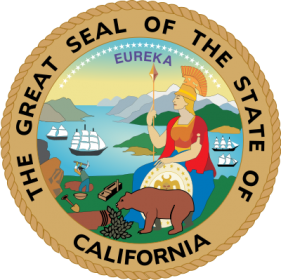Second California Online Poker Bill of 2015 Introduced
California state legislative battles loom over the Golden State’s possible regulation of intrastate online poker, following the introduction of a second Assembly bill within a bit more than a month. This time, CA State Representative Reggie Jones-Sawyer has introduced Assembly Bill 167 for consideration, a bill that includes several significant contrasts to a bill offered by Rep. Mike Gatto in December, also for consideration in the state’s current legislative session.
While a complete breakdown of Jones-Sawyer’s latest online poker bill, AB 167, will be offered at FlushDraw in the near future, the biggest news here is the bill’s omission of a controversial “bad actor” clause that was present in all previous online-poker bills offered for consideration in California. That stands in contrast to Jones-Sawyer’s previous bill, the so-called Internet Poker Consumer Protection Act of 2014, which also included such language.
The various bad-actor provisions remain present in Gatto’s alternative AB 7. That sets up a showdown between two groups of interested entities in the battle over California online poker.
On one side are tribal and card-room entities aligned with PokerStars, the Amaya-owned online giant that has been targeted by the bad-actor provisions, such as that included in Gatto’s bill. On the other are tribes from a strident coalition of California tribal nations, including several of the state’s most powerful casino-gaming tribes, who continue trying to create an online-poker market only for themselves.
The introduction of Jones-Sawyer’s AB 167, and its removal of such bad-actor language from the assemblyman’s earlier bills, quickly drew statements from both sides in the bad-actor dispute.
From a spokesman for PokerStars and its aligned California card rooms and tribes, which include Morongo Band of Mission Indians, San Manuel Band of Mission Indians, plus California’s three largest card clubs – the Commerce Club, the Hawaiian Gardens Casino and the Bicycle Casino:
“We applaud Assembly Member Jones-Sawyer for his thoughtful approach to iPoker legislation in California which takes into account many years of input from stakeholders on all sides, including the California Department of Justice. We are still looking at the fine details of AB 167, but we are encouraged that his approach will move the discussion of online poker forward in a positive direction. The bill seeks to establish a vibrant, competitive, fully inclusive marketplace with choices for consumers that enacts strong consumer protections; requires strict oversight and regulation of operators and licensees; and ensures a financial return for the state.
“Our coalition strongly believes that – in order to be successful passing iPoker legislation that brings much-needed protection to consumers in a currently unregulated market – the various interests need to work together. In place of previous attempts to use the legislative process to provide competitive advantages to a few operators, Assembly Member Jones-Sawyer’s bill brings parties with diverse interests together to move legislation forward.
“It’s time to move on, and move forward. We are pleased to see that Assembly Member Jones-Sawyer recognizes this. We applaud his efforts to shift the discussion in a new and hopefully more fruitful direction.”
On the flip side, Pechanga tribal chairman Mark Macarro attacked the latest Jones-Sawyer bill. Macarro wrote:
“There is much for tribes to dislike about this bill.
“We are disappointed that the bill disregards important principles from a broad coalition of respected tribes and card rooms that help prevent corporations and entities that previously violated federal law from profiting from tainted software, brands, and databases derived from illegal activity.
“Tribes have been steadfast in the principle that online poker be consistent with California’s longstanding public policy of limited gaming, and that means keeping it to just tribes and card rooms. California voters have always had the final say on gaming expansion and they have already rejected expansion of gaming for horse racing.”
The Pechanga, Pala and Rincon tribes are three of about a dozen prominent tribes that are believed to be pushing the hard-line approach. It’s interesting to note that despite Macarro’s latest statement, the earliest versions of the Pechanga-funded legislation, several years back, included only the tribes themselves, and not even the state’s licensed cardrooms. Including said cardrooms was the first step in coalition building, a process which clearly must continue before any form of state-authorized online poker becomes a reality in California.
The bad-actor language favored by the hard-line tribes ignores the fact that all potential online-gaming providers must pass suitability requirements as determined by California state gaming regulators, and that playing online poker has never been illegal in California. In addition PokerStars parent Rational Group paid a large federal settlement to the US Department of Justice in 2012, while admitting no liability, and the company was subsequently sold to Canada-based Amaya Gaming last year.





















COMMENTS